- Home
- Edith Wharton
Ethan Frome, Summer, Bunner Sisters Page 2
Ethan Frome, Summer, Bunner Sisters Read online
Page 2
Her story had its specific factual origins in a terrible sledding-accident in Lenox in 1904, and in the lingering, fatal paralysis of a Lenox friend, Ethel Cram, after an injury in 1905. More broadly, it provides, by inference, a factual, sociological account of this bleak slice of American life. We learn, through the narrator, about the transactions between local farmers and builders, the effects of the railway, attitudes to debt and the status of doctors, the inadequate education of girls, and levels of rural unemployment. Occasionally her narrator uses a phrase which opens up the distance between ‘us’ and ‘them’: ‘the hard compulsions of the poor’, ‘a community rich in pathological instances’. So, as she often does, Wharton uses a unique, pitiful story for a generalized, determinist account of environmental pressures, and holds romance and realism brilliantly in balance.
All the harsh matter-of-factness of life in Starkfield – dogged conversations about money and work, details of journeys, luggage, buildings, medicines, farming, the omnipresent but useless church, the ingrown, watchful community, the practical difficulties created by the weather – are mixed with suppressed romantic emotions, passionately invested in nature. What to the narrator seems a blank and desolate wilderness becomes, when we see it through Ethan and Mattie’s eyes, a landscape full of detail and beauty. The emotions that are so ‘kept down’ come through in an intense sensual language straight out of Keats (one of Wharton’s favourite poets). Ethan’s awareness of ‘huge cloudy meanings behind the daily face of things’ calls up ‘Huge cloudy symbols of a high romance’ in Keats’s anguished farewell to life and love, ‘When I have fears that I may cease to be’. The wintry romance of Keats’s ‘The Eve of St Agnes’ is touched in everywhere. The snow beats ‘like hail against the loose-hinged windows’, as, in Keats’s poem, the ‘frost-wind’ blows the ‘quick pattering’ of the ‘flaw-blown sleet’ ‘against the window-panes’. The warm little feast in the kitchen is a homely version of Porphyro’s sensual banquet; the ‘lustrous fleck’ on Mattie’s lip in the lamplight is like the ‘lustrous’ light of Madeline and Porphyro’s encounter, lit by moonlight. Mattie’s erotic trance (‘She looked up at him languidly, as though her lids were weighted with sleep and it cost her an effort to raise them’) is like Madeline’s tranced sleep. Ethan’s ‘ache’ of cold weariness echoes Keats’s knights in armour aching in their ‘icy hoods and mails’. These lovers make a doomed attempt, like Keats’s lovers, to flee away for ever into the storm; but the story, like the poem, ends with the crippled paralysis of an old ‘beldame’, who dies ‘palsy-twitched, with meagre face deform’. In both there is the sense of it all having happened ‘ages long ago’.
The ‘high romance’ in Ethan Frome speaks through nature:
Slowly the rim of the rainy vapours caught fire and burnt away, and a pure moon swung into the blue. Ethan, rising on his elbow, watched the landscape whiten and shape itself under the sculpture of the moon.… He looked out at the slopes bathed in lustre, the silver-edged darkness of the woods, the spectral purple of the hills against the sky, and it seemed as though all the beauty of the night had been poured out to mock his wretchedness …
Wharton told Berenson that it gave her ‘the greatest joy and fullest ease’ to write this story. She knew that distance can create closeness, and that transforming painful materials can produce creative joy. Ethan Frome was an anguished elegy to love, and a description of being incarcerated in a terrible marriage. It was also a farewell to New England, written a long way away from it, and published as she would be leaving it for ever.
*
When Wharton returned to the landscape of Ethan Frome, five years later, she again used the word ‘joy’ to describe the process of writing about pain and loss. Summer, written in the summer of 1916 and published in 1917, was, she told Berenson in May 1917, written at ‘a high pitch of creative joy’. It was her escape from the pressures and demands of her war-work in France, as much of an antidote as possible to refugees and hospitals. It is a high-coloured, full-blooded, sensual narrative with an intense appetite for life. But it is shadowed by violence and death and by dark emotions about nationhood, civilization, and savagery.
The idea for it suddenly came into focus, but she had had it in mind since Ethan Frome. She often mentioned them together, famously calling Summer the ‘hot Ethan’. Like Ethan Frome, Summer is a novella set in the poorest and remotest part of New England, in which an inarticulate, untravelled character with an obscure sense that there might be some preferable life elsewhere has a brief moment of idyllic love and joy but is pulled back to the harsh realities of the place she lives in. Summer’s romance is fulfilled, not thwarted like Ethan’s. It is one of the few Wharton fictions in which a love affair is acted out rather than denied. But, as elsewhere in her fiction, pain, loss, and grief rush up behind it.
The novel is brim-full of, and best known for, a sensual evocation of the New England countryside in heat, felt through the perceptions of a young woman close to nature: uneducated, speechless, throbbing with awakening eroticism. She feels and thinks through her blood, she lies on the ground like an animal, ‘her face pressed to the earth and the warm currents of the grass running through her’. She feels earth and water, heat and light, sun and the colour of skies (Summer is full of fine sunsets) and the ‘long wheeling fires’ of stars on her pulses. She is all sap, growth and passive, sun-warmed earth-life, and Wharton piles this on with a Whitmanesque feel for minute, creaturely animalism. Heroine and author seem far apart, but Wharton gives her her own passionate feeling for nature and her nostalgia for her lost New England countryside, so remote from the war-bound rue de Varenne.
Pagan sensuality is at the heart of the novel’s escapism, but the heroine is not a joyous figure, and the summery outdoors is not the novel’s only landscape. Charity Royall is a discontented creature, more like a small-town Undine Spragg than like Mattie in Ethan Frome. (Conrad, who enjoyed Summer, praised her ‘bewildered wilfulness’ in a letter to Wharton in October 1917). She is trapped in a gossipy, puritanical, and philistine little town, which is almost all she has ever known. She lets out hot bursts of inarticulate resentment: ‘How I hate everything!’ ‘Things don’t change at North Dormer: people just get used to them.’ The name of the town puns on the French for sleep, implying ‘dormant’ and ‘dormitory’. North Dormer defines its level of civilization not against Boston or New York or the wider world but against ‘the Mountain’, a ‘bad place’ that looms over the town from fifteen miles away, where a squalid, degenerate community, ‘a little colony of squatters’, lives beyond the pale of the law or the church or any genteel ‘household order’. (They are said to be descendants of the men who built the local railways fifty years before, who took to drink and ‘disappeared into the woods’. Wharton derived them, she tells us in her memoir, A Backward Glance, from a real colony of ‘drunken mountain outlaws’ on Bear Mountain, near Lenox.) This is where Charity Royall was born, rescued as a little girl by Lawyer Royall from a convict and a bad mother, and brought up first by the lawyer and his wife, and then, after Mrs Royall’s death, by him alone. Her name has been imposed on her, marking her out as a recipient of philanthropy, and a possession. She is made to feel ‘poor and ignorant’ and ashamed of her origins, protected only by the distinction of her guardian.
Mr Royall, though banked down for a great deal of Summer (because we mainly see him through Charity’s eyes) is its most powerful and problematic character: Wharton always insisted that ‘he’s the book’. A disappointed man who could have had a better career somewhere else, vigorous, intelligent, impressive, he is also gloomy, bitter, given to drink, and in need of female company. He once tries to break his way into Charity’s room when she is seventeen; she holds him at bay by force of will, and never forgives him. When, after this, he asks to marry her, he seems to become ‘a hideous parody of the fatherly old man she had always known’. She continues to live in his house, but on her own terms, which includes taking a pointless job at the moribund local libr
ary, where she sits furiously all day surrounded by books she has no idea how to read.
This is where she is at the start of the novella, which immediately introduces a blithe, handsome, cultured young visitor, Lucius Harney, an architect interested in old New England houses, with whom Charity falls in love. (Harney is thinly characterized, but he is meant to be lightweight.) Her secret love affair, ‘a wondrous unfolding of her new self’, which makes her even more conscious of her ignorance and provincialism, comes under the constant pressure of small-town surveillance. For all its romantic ardour, rhapsodically conveyed, it is increasingly felt to be a risky illusion, shadowed by menace and fear.
Large-scale realistic local set-pieces interrupt the idyll, which combine, as increasingly in Wharton’s postwar American writing, nostalgia and distaste. There is a July Fourth celebration in Nettleton (based on Pittsfield), complete with omnibuses, shop displays of confectionery and fancy goods, a firemen’s band and a picture show, trolley rides to the Lake and fireworks displaying ‘Washington crossing the Delaware’. A romantic adventure for Charity, it ends humiliatingly in an encounter with a drunken, abusive Royall. That is followed by North Dormer’s marking of Old Home Week with a banquet, a dance, a procession to the church, and speeches, for which the local girls are dressed – highly ironically in Charity’s case – in vestal, sacrificial white. Wharton enjoys herself with these local American rituals, viewed through Charity’s impressionable eyes. T. S. Eliot, reviewing Summer in the Egoist in January 1919, thought the whole thing was a satire on the New England novel, done by ‘suppressing all evidence of European culture’. This is not quite true, as a touch of French culture is slipped into Nettleton when Lucius takes Charity to a little French restaurant. But these provincial festivals do display the American insularity and isolationism that Wharton had been complaining about in the early years of the war, before the United States involved itself in the struggle. She calls it, drily, ‘sentimental decentralization’, and makes fun of the genteel spinster, Miss Hatchard, who insists on the importance of ‘reverting to the old ideals, the family and the homestead, and so on’.
The idea of ‘home’ in Summer goes beyond a satire on provincialism and insularity, though. It plays through the novella in subtle ways. Lucius is investigating the fine old eighteenth-century houses of rural New England, many of which have been left to decay: his architectural interests show up the local indifference, at the time, towards historical American homes. The lovers’ secret trysting-place is a deserted, ghostly little house in an abandoned orchard, a fragile, pathetic, makeshift home. Lawyer Royall makes a speech at the ceremony, which shows him at his best, about ‘home’ as a site of potential, not of confinement. Those who have gone away from their old home may return ‘for good’: to make it a ‘larger place’ and ‘to make the best of it’. Wharton was partly thinking, as she often did, about what it would have been like for her to go back to America and stay there, instead of living her life in France. But she was also implying that small-town America needed to look outward and could be improved by sending its sons off to war.
The grimmest ‘home’ in the novella is the savage place Charity comes from, a derelict shed on the mountain, described with as much brutality as Wharton can muster. This is where Charity goes when her lover leaves her for a girl of his own class and she becomes pregnant, and this is where she tells herself she belongs. There is no romance or decorum here to cover over the life of the body, displayed with shocking ruthlessness in the figure of Charity’s dead mother:
A woman lay on it [a mattress on the floor] but she did not look like a dead woman; she seemed to have fallen across her squalid bed in a drunken sleep, and to have been left lying where she fell, in her ragged disordered clothes. One arm was flung above her head, one leg drawn up under a torn skirt that left the other bare to the knee: a swollen glistening leg with a ragged stocking rolled down about the ankle.… She looked at her mother’s face, thin yet swollen, with lips parted in a frozen gasp above the broken teeth. There was no sign in it of anything human: she lay there like a dead dog in a ditch.
Charity’s only consolation for this sight is the burial service, administered by the priest who is going to help her return to her guardian and her town, where she also belongs – and does not belong. The powerful burial scene on the mountain takes us back to the world of war in Europe from which Summer was meant to be an escape. All the ingredients of war that were at the forefront of Wharton’s mind at this time – the slaughter, the corpses, the wretched women and children, the refugees with their homes destroyed, the balm of religious ritual, the efforts, however inadequate, of charity – cluster behind this scene. And Charity is a victim, like so many of the war survivors Wharton was dealing with at the time of writing Summer.
The choices she has, as a woman, are few and grim. This is one of Wharton’s most outspoken and lacerating books about the limitations of women’s lives – for all that she is not easily described as a feminist. Charity is at the mercy of a male double standard. Royall, himself prone to ‘debauchery’, is violently abusive about Charity’s ‘half human’ mother and Charity’s bad blood, and the person he talks to about this is the two-timing Lucius, as though both men are conspiring to judge and define the speechless, exploited girl. Charity’s choices are to return to the ‘animal’ life of her mother or to have an abortion or to become a prostitute. These options are very clearly spelt out, much more openly than in any previous novel of Wharton’s. There is even a visit to the abortionist: the sign reads ‘Private Consultations … Lady Attendants’, and the woman doctor seems to be Jewish. There are several uses of the word ‘whore’. (As a result, Summer was banned in Pittsfield and much disapproved of by Wharton’s Boston readers.) Charity is recognizably in the tradition of ‘the woman who pays’: pregnant Hetty Sorrel in Adam Bede, Tess abandoned by her lover in Hardy’s novel. Wharton even has Charity encountering a preacher on the road, in a ‘gospel tent’, like Tess’s encounter with a travelling evangelist. Most of all she invokes Hester Prynne in Hawthorne’s Scarlet Letter, cast out by the Puritan community for adultery, more in tune with the natural wilderness than the town, and listening, as Charity listens, to the rhetoric of the preacher giving his great Election Day sermon on the values of America. Wharton plants the clue herself, comparing Summer’s realism with Hawthorne’s in A Backward Glance. And there is a strong echo of Hawthorne’s obsessional, spying old husband Chillingworth in Lawyer Royall.
The ending of Summer is extremely disturbing, and to some readers as harrowing as the ending of Ethan Frome and as bleak as Bunner Sisters. The window onto joy and romance closes down for ever, and Charity, in a state of passive horror and exhaustion, allows herself to be led off the mountain, and married, by her much-hated father figure. The ending can be read as a depressing immolation of youth and hope in a hypocritical and quasi-incestuous social compromise. Or it can be seen as a realist adjustment on both sides, since at this point Royall becomes grave, kindly, and forbearing, and Charity feels reassured and secure, as in a refuge. Royall’s acceptance of Charity and her baby could be read not as exploitative but as bravely introducing into self-protective, small-town America a necessary new influx of ‘strange blood’. Wharton’s readers cannot agree about the ending, because the book pulls against itself. The loss of midsummer love is felt as unbearable but inevitable. Growing up (for countries as for people) is a process of ‘tragic initiation’, and it means moving from romance to ‘ineluctable reality’, adopting the stoicism that is the only virtue left in the face of great catastrophe, and ‘making the best of it’.
Hermione Lee
HERMIONE LEE is Goldsmiths’ Professor of English Literature and Fellow of New College, Oxford. Her books include biographies of Edith Wharton and Virginia Woolf, and critical studies of Elizabeth Bowen, Willa Cather and Philip Roth.
SELECT BIBLIOGRAPHY
——

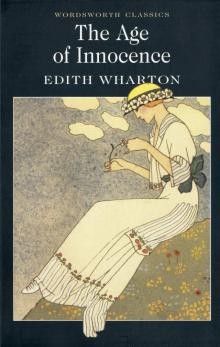 The Age of Innocence
The Age of Innocence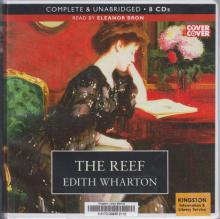 The Reef
The Reef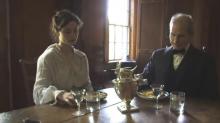 Summer
Summer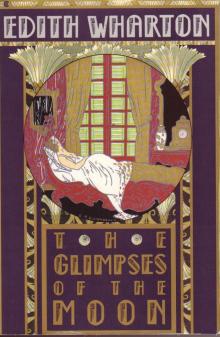 The Glimpses of the Moon
The Glimpses of the Moon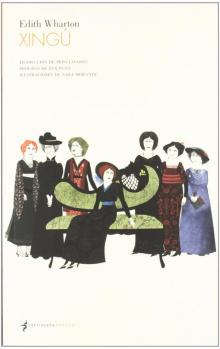 Xingu
Xingu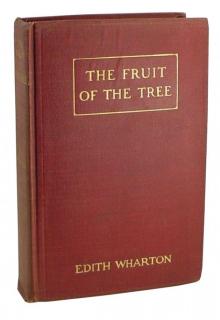 The Fruit of the Tree
The Fruit of the Tree Fast and Loose
Fast and Loose Artemis to Actaeon and Other Verse
Artemis to Actaeon and Other Verse The Line of Least Resistance
The Line of Least Resistance The Lamp of Psyche
The Lamp of Psyche The Reckoning
The Reckoning Afterward
Afterward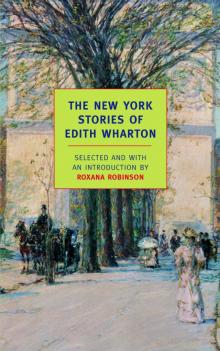 The New York Stories of Edith Wharton
The New York Stories of Edith Wharton The 2014 Halloween Horrors Megapack
The 2014 Halloween Horrors Megapack 'Copy': A Dialogue
'Copy': A Dialogue The Recovery
The Recovery The Fulness of Life
The Fulness of Life Early Short Stories Vol. 1
Early Short Stories Vol. 1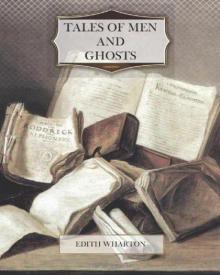 Tales of Men and Ghosts
Tales of Men and Ghosts The House of the Dead Hand
The House of the Dead Hand That Good May Come
That Good May Come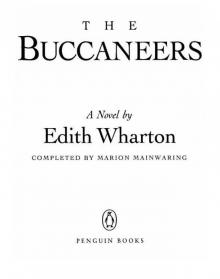 The Buccaneers
The Buccaneers Other Times, Other Manners
Other Times, Other Manners The Hermit and the Wild Woman
The Hermit and the Wild Woman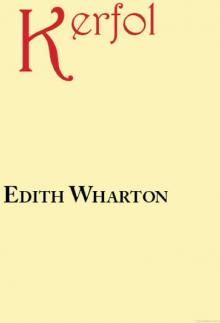 Kerfol
Kerfol The Duchess at Prayer
The Duchess at Prayer Bunner Sisters
Bunner Sisters The Choice
The Choice Madame De Treymes
Madame De Treymes Ethan Frome, Summer, Bunner Sisters
Ethan Frome, Summer, Bunner Sisters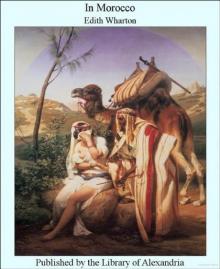 In Morocco
In Morocco The Valley of Decision
The Valley of Decision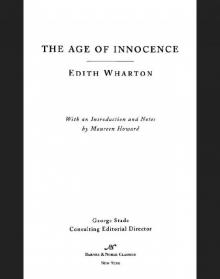 Age of Innocence (Barnes & Noble Classics Series)
Age of Innocence (Barnes & Noble Classics Series) The Angel at the Grave
The Angel at the Grave April Showers
April Showers Sanctuary
Sanctuary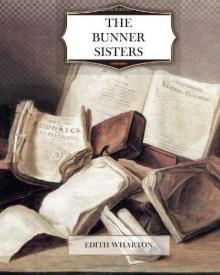 The Bunner Sisters
The Bunner Sisters Mrs. Manstey's View
Mrs. Manstey's View Writing a War Story
Writing a War Story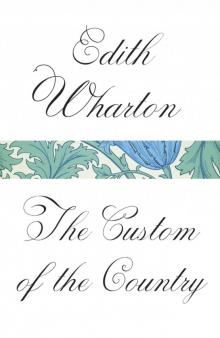 The Custom of the Country
The Custom of the Country In Trust
In Trust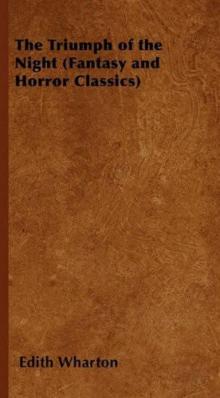 The Triumph of the Night
The Triumph of the Night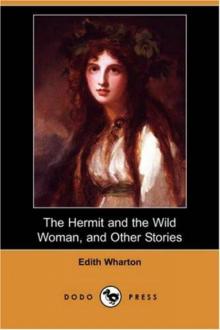 The Hermit and the Wild Woman, and Other Stories
The Hermit and the Wild Woman, and Other Stories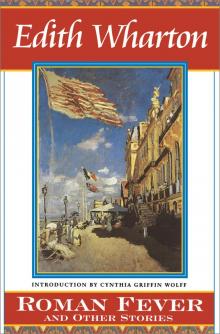 Roman Fever and Other Stories
Roman Fever and Other Stories The Mission of Jane
The Mission of Jane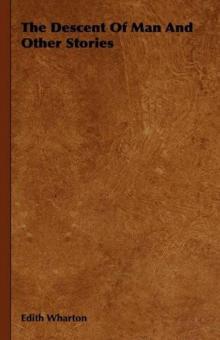 The Descent of Man and Other Stories
The Descent of Man and Other Stories Coming Home
Coming Home The Touchstone
The Touchstone Early Short Stories Vol. 2
Early Short Stories Vol. 2 Edith Wharton's Verse, 1879-1919, from various journals.
Edith Wharton's Verse, 1879-1919, from various journals.